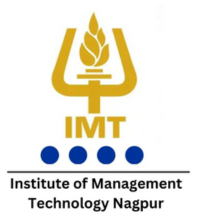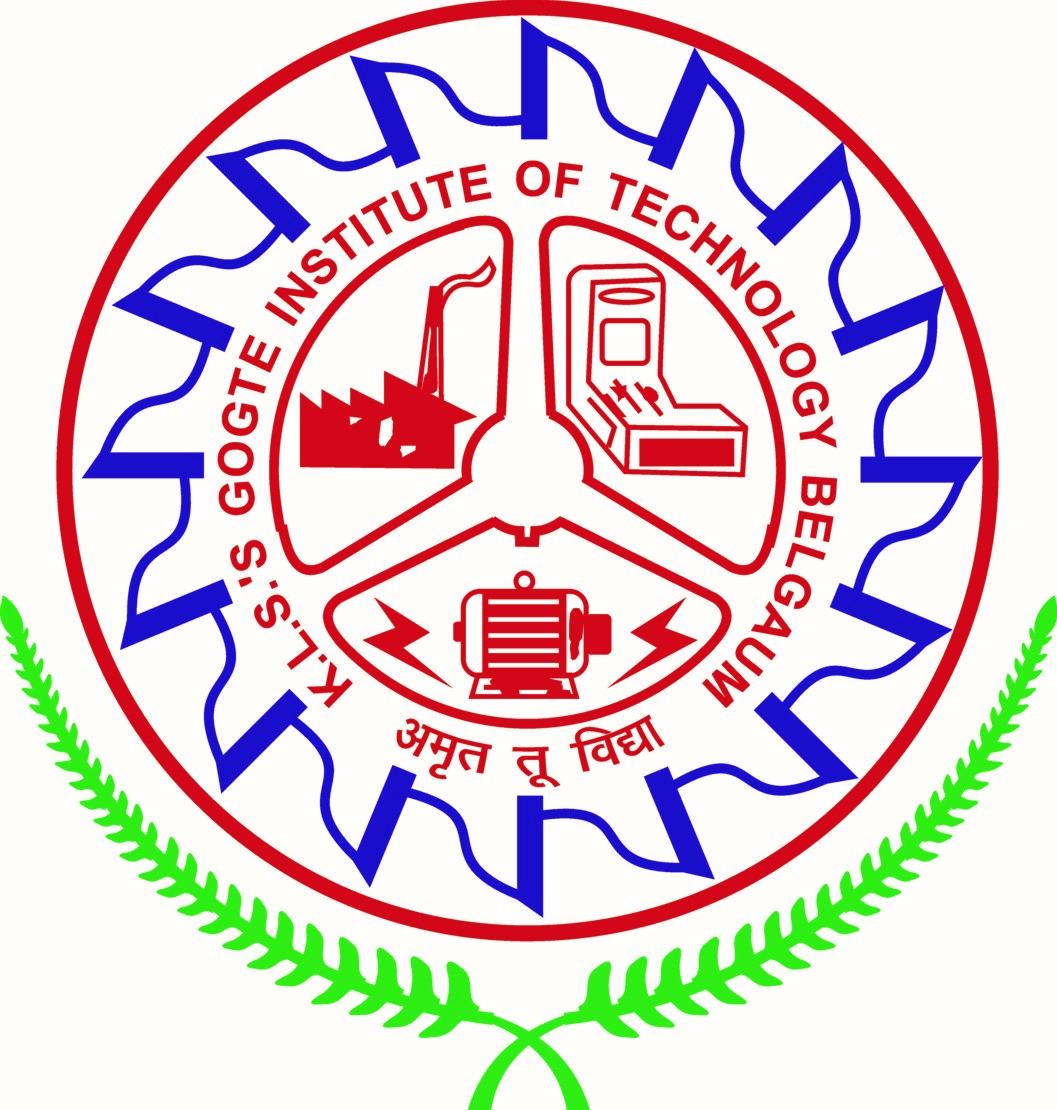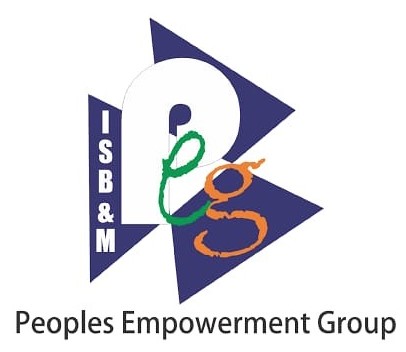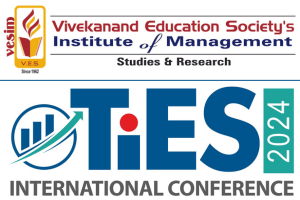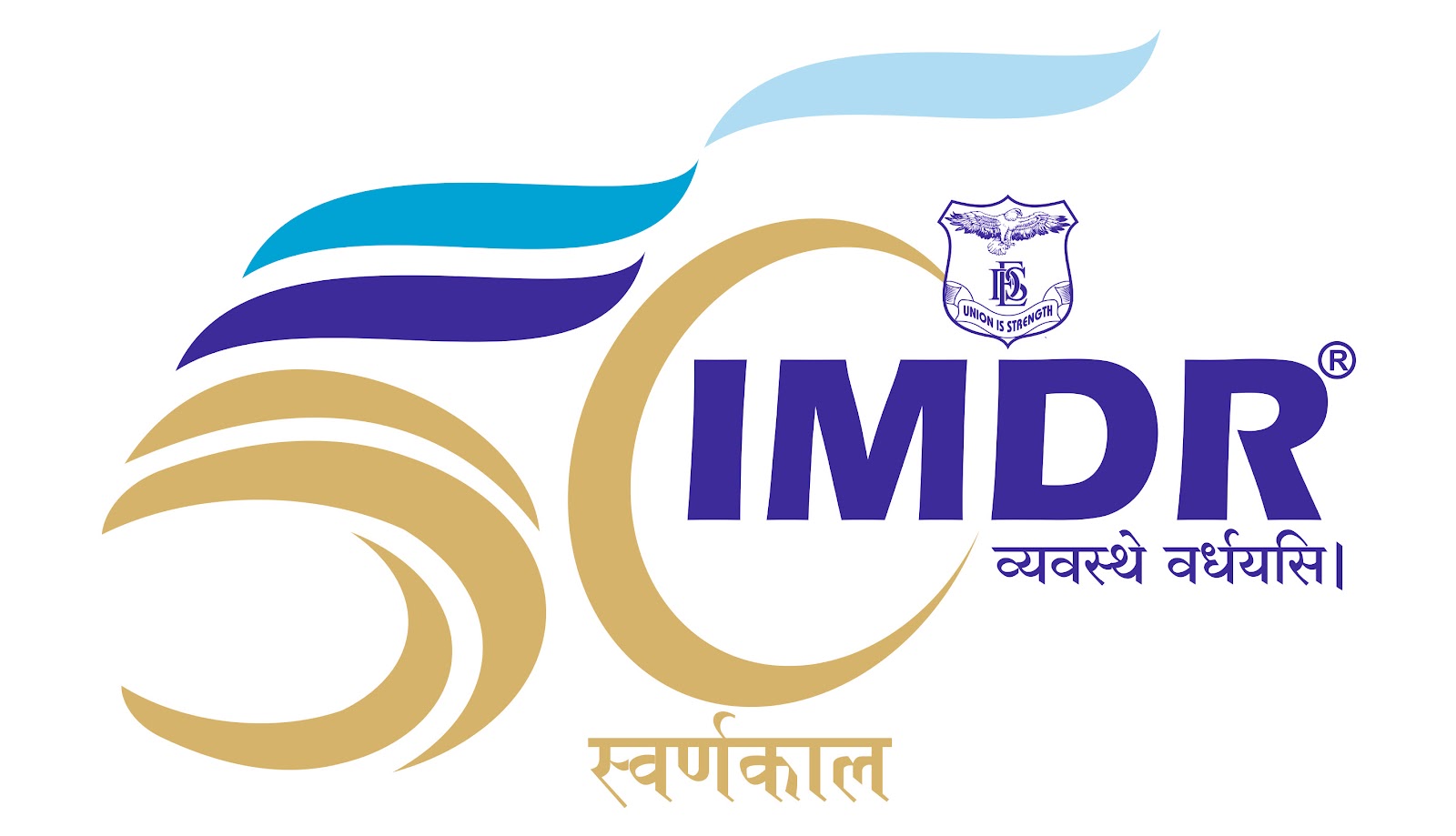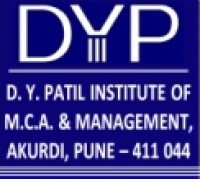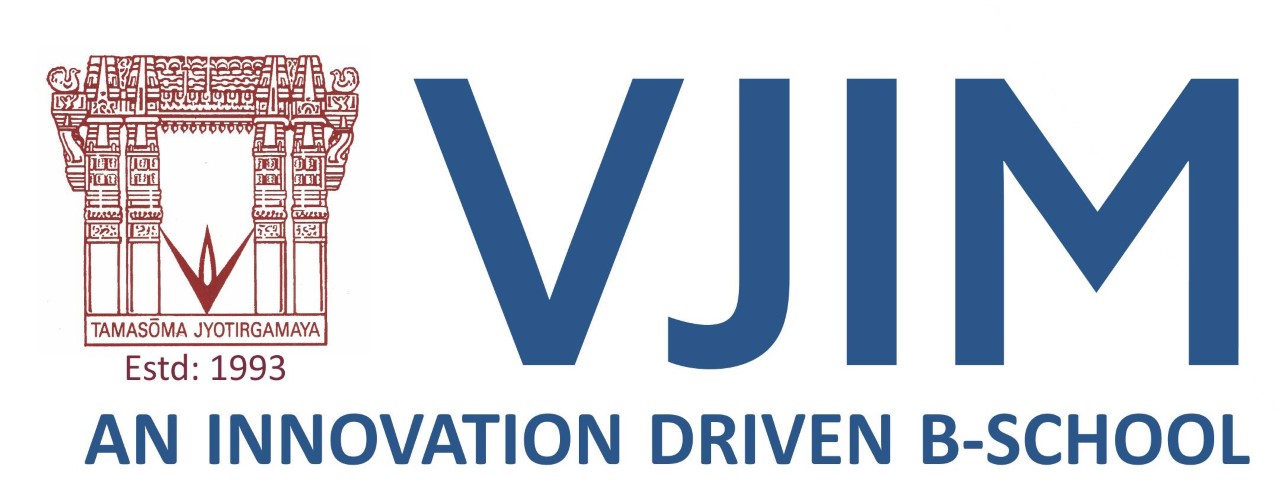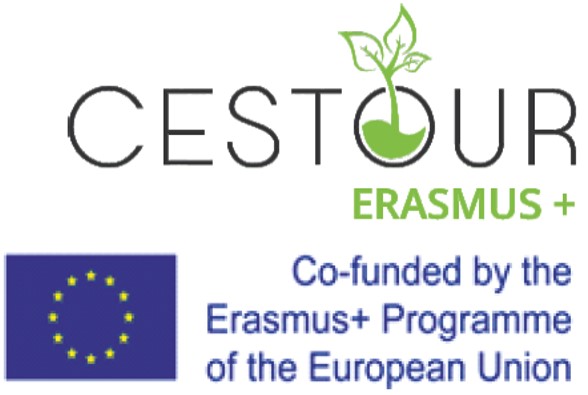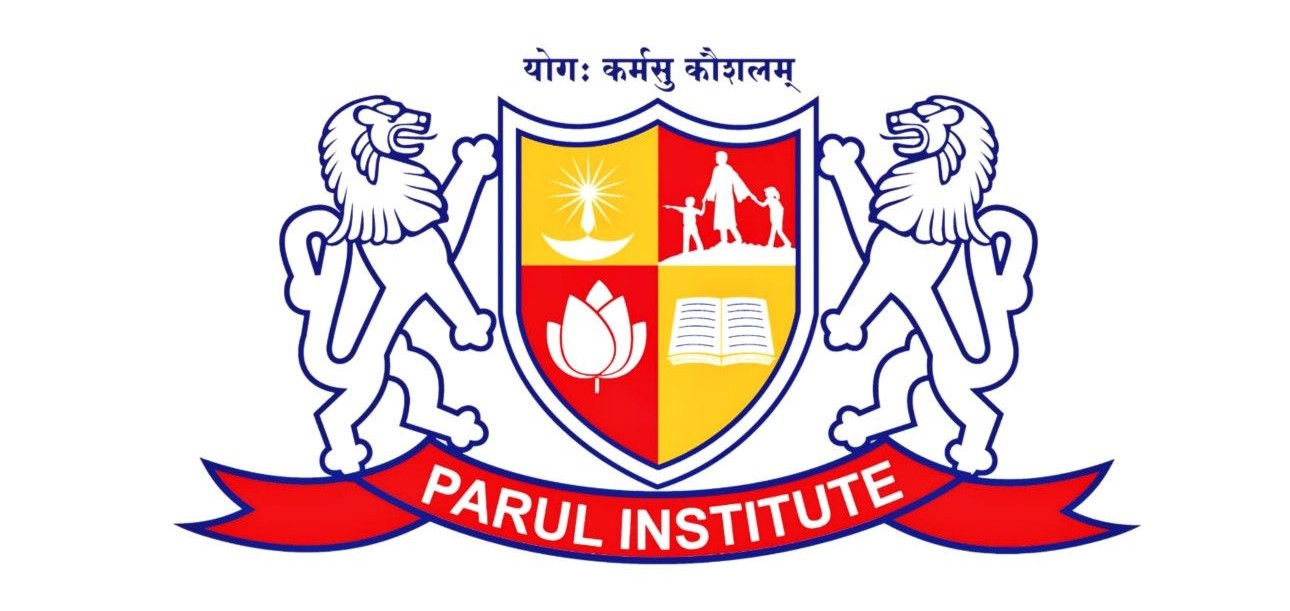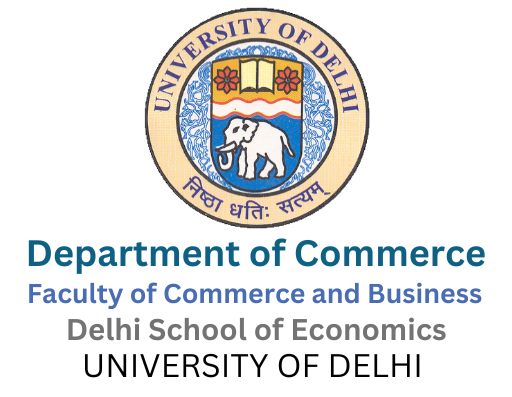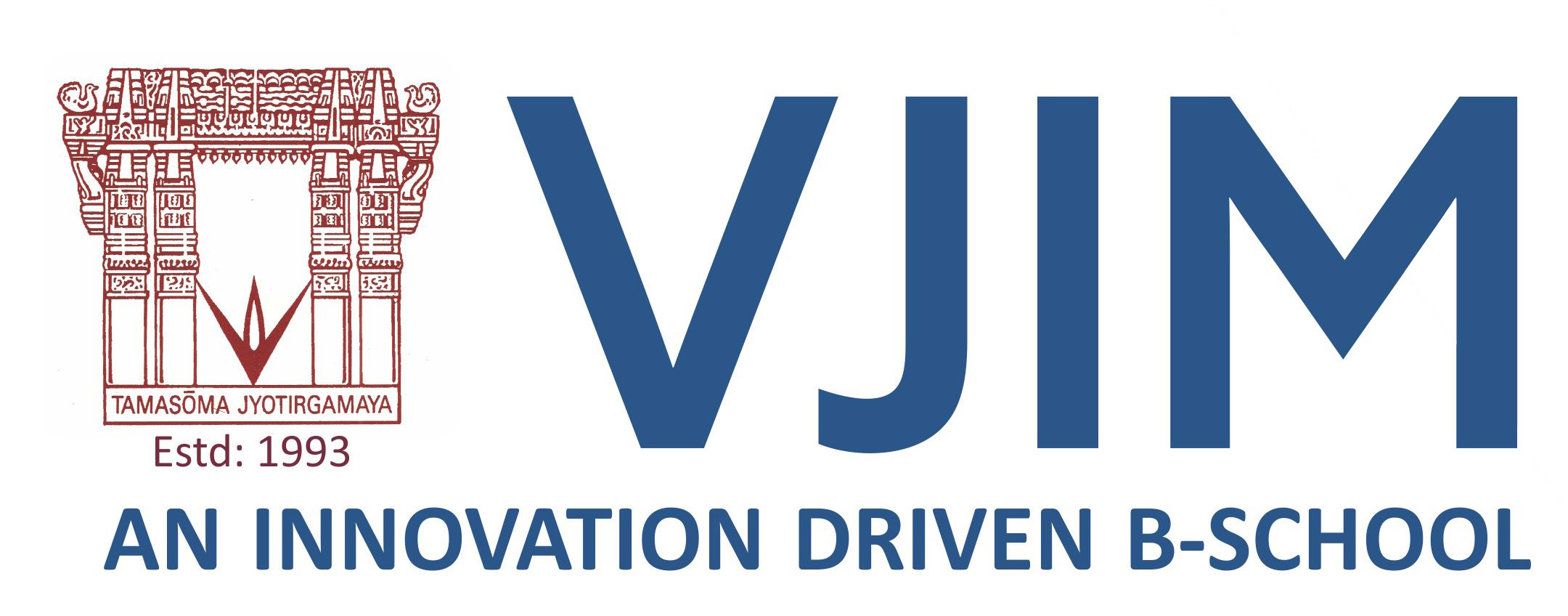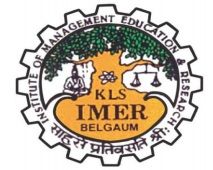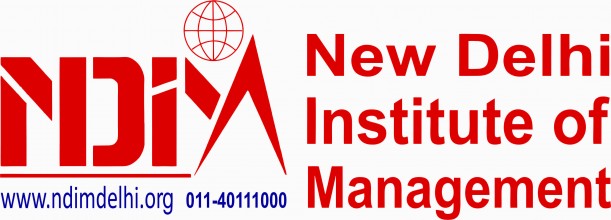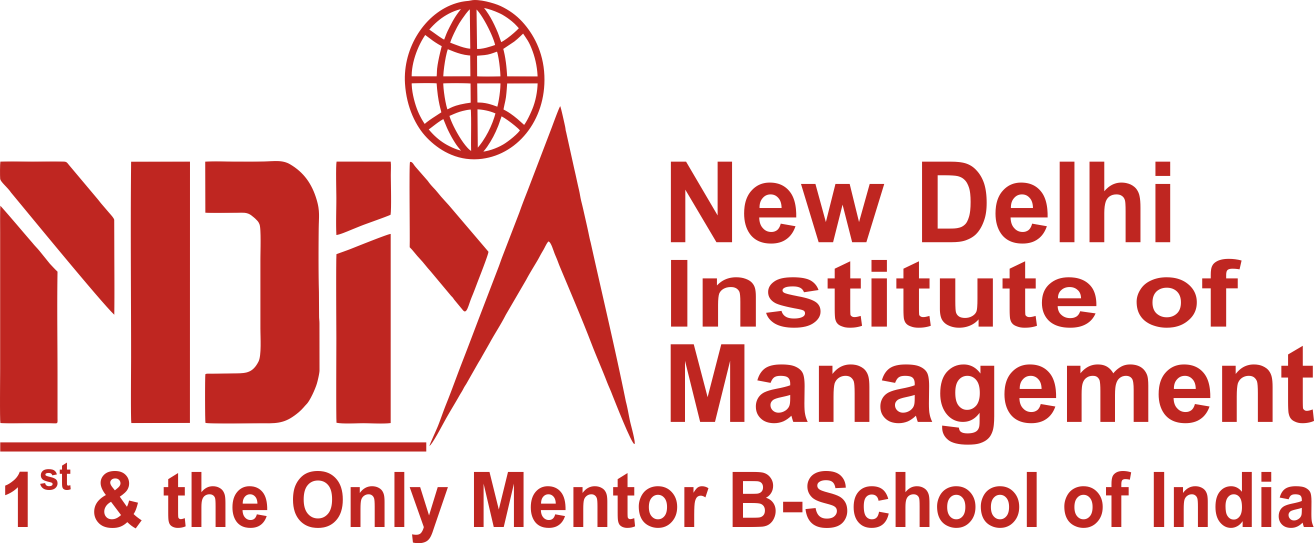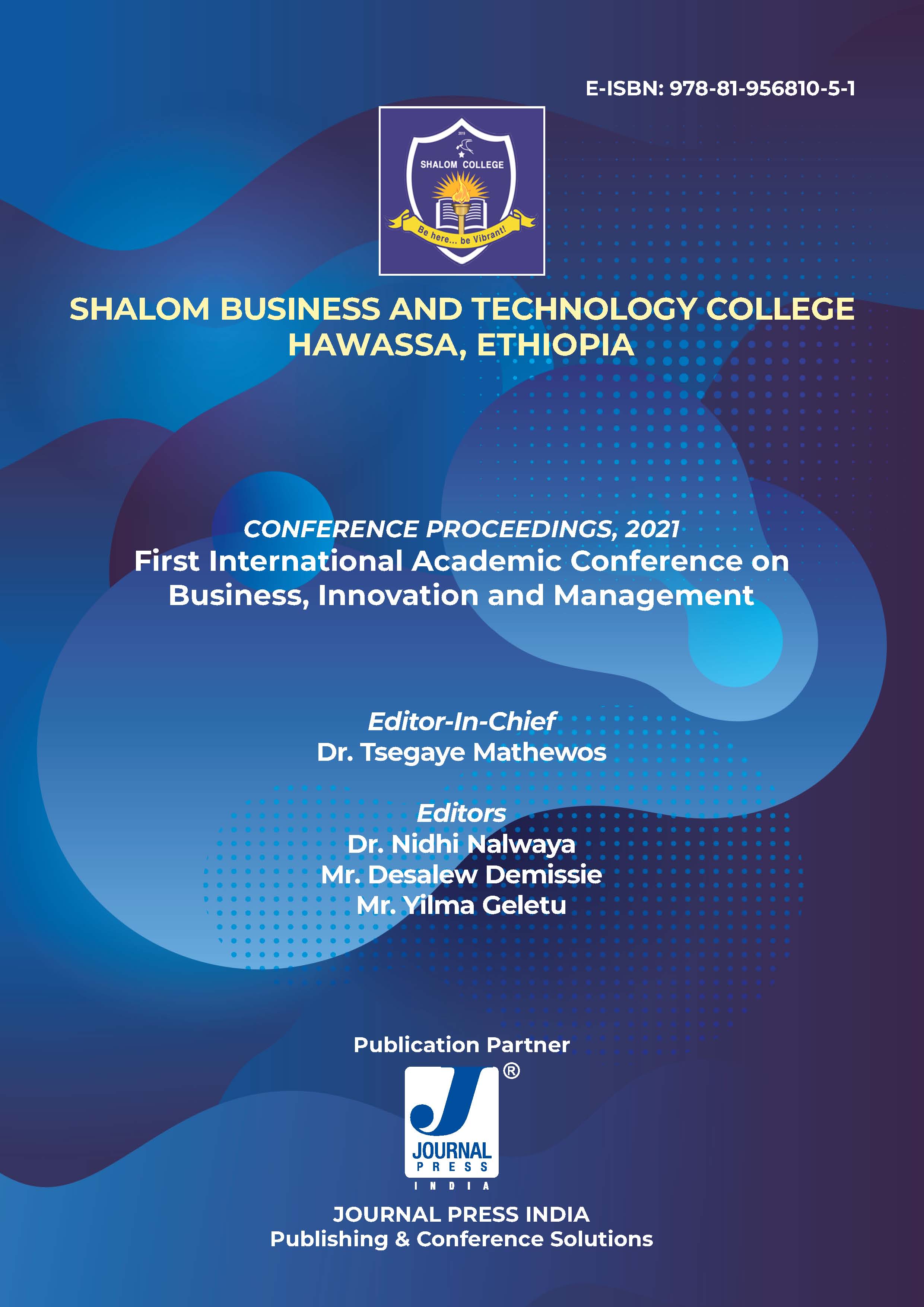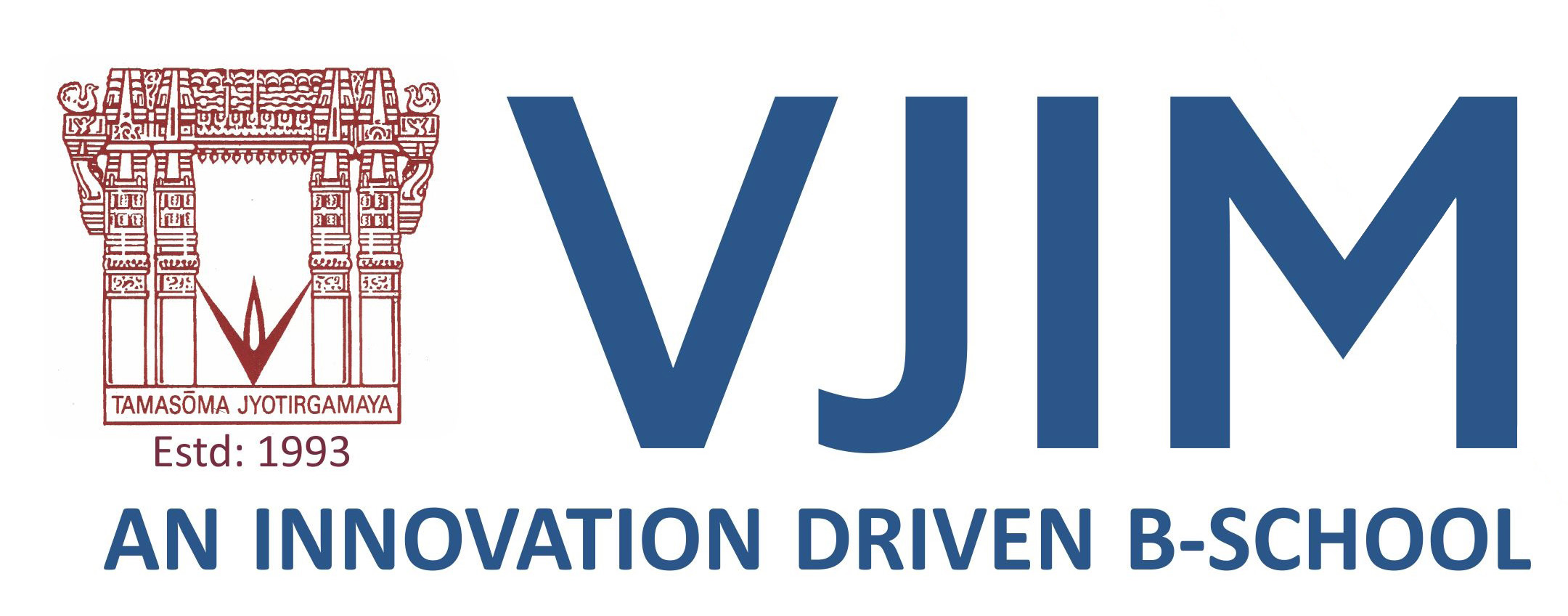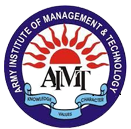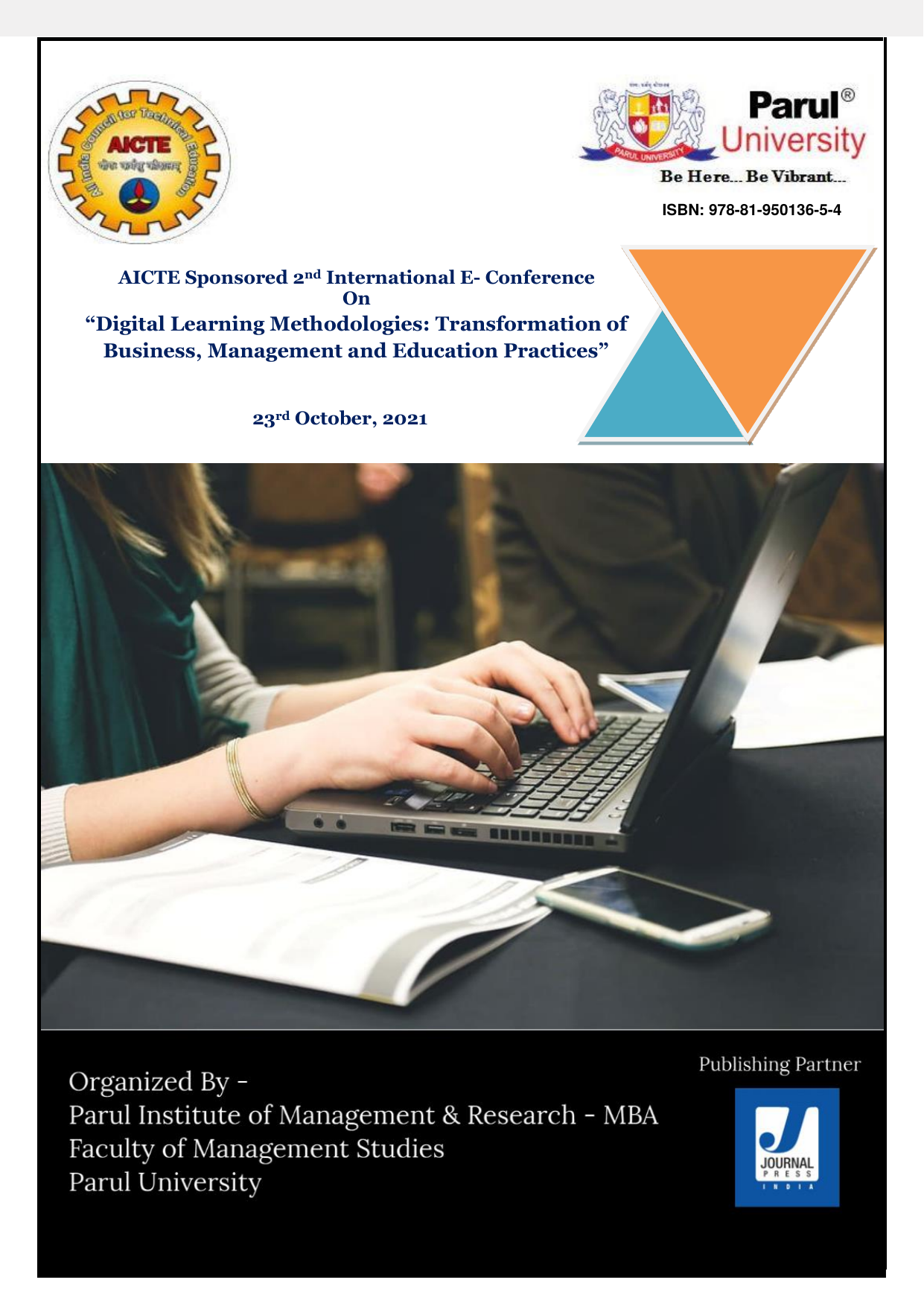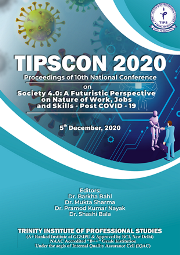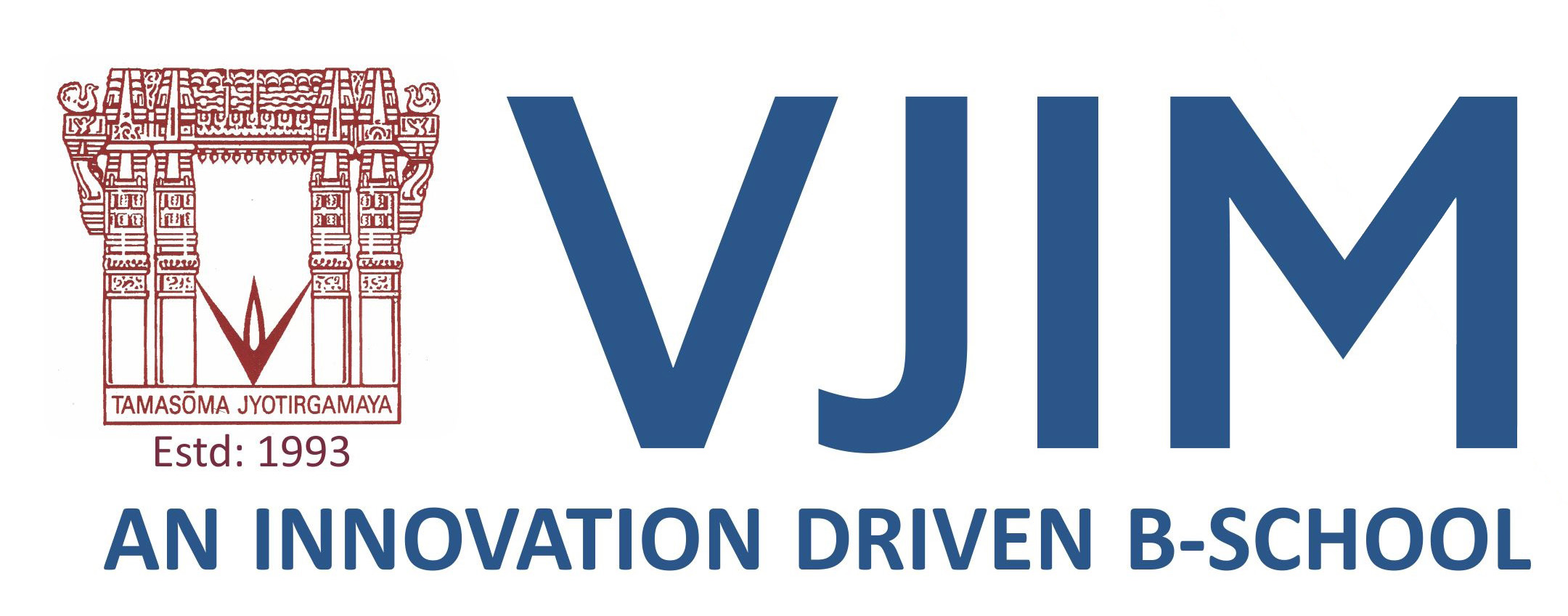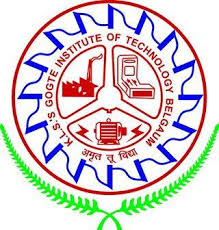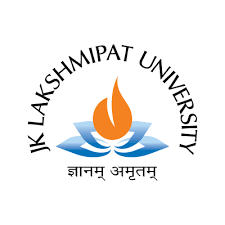Conference Publications
Book Title: Converging Horizons in Construction and the Built Environment: Digital, Sustainable, and Strategic Perspectives ... by School of Construction, NICMAR University, Pune
This multi-volume edited book brings together a diverse collection of postgraduate research that reflects the evolving intersections of construction, infrastructure, real estate, sustainability, digital innovation, and contemporary management practices. It offers a comprehensive view of the built environment through the lens of both technical rigor and strategic insight, making it a valuable academic and professional resource. The chapters span critical themes such as digital construction technologies, project risk and cost management, urban mobility, green infrastructure, circular economy practices, and emerging business models in real estate and logistics. Additionally, it integrates persp
ectives from allied areas of management, including supply chain strategies, policy analysis, and financial planning, positioning the book at the crossroads of engineering excellence and managerial foresight. Rooted in the academic ethos of NICMAR University, Pune, the book reflects the innovative thinking and practical orientation of its postgraduate student community. It presents not only technical solutions but also explores strategic frameworks and decision-making tools relevant to today’s dynamic built environment. The volumes present a diverse range of topics organized alphabetically, offering readers a broad and accessible overview of emerging research across domains. With contributions exclusively from postgraduate students pursuing their Master of Business Administration (MBA), this publication aims to spark critical thinking and promote research-based solutions that align with national development goals and global sustainability imperatives. Ideal for students, educators, researchers, and professionals, this book equips readers with the knowledge to navigate, influence, and lead in the transforming world of construction and the built environment.
RIIM International Conference (RIC) 2025 on Emerging Trends in Global Business Management: A Changing Landscape organized by Ramachandran International Institute of Management (RIIM), Pune
The RIIM International Conference 2025 on Emerging Trends in Global Business Management: A Changing Landscape" is dedicated to exploring the transformative shifts that are redefining the global business landscape. In a world marked by rapid technological advancements and unprecedented economic challenges, the business management field faces constant change. This conference aims to bring together scholars, academicians, industry experts, and practitioners to discuss and analyze these dynamics, while also sharing research-driven insights and innovative solutions for adapting to the new realities of global business. This year’s theme, "A Changing Landscape," emphasizes the
critical role of agility and foresight in navigating today's business environment. Attendees will benefit from keynote speeches by prominent figures in global business, panel discussions, workshops, and research presentations that highlight current trends and emerging areas of focus within business management. This event provides a platform to bridge academia and industry, empowering attendees to exchange knowledge, inspire future strategies, and build collaborations that align with the evolving demands of global business. Join us in engaging with forward-thinking perspectives and discovering actionable insights at the forefront of global business management.
4th International Conference on AI-Driven Innovation Sustainable Commerce: Redefining Business Dynamics, Managerial Practices and Financial Synergies Organised by PMIST, Thanjavur
The conference titled “AI-Driven Innovation in Sustainable Commerce: Redefining Business Dynamics, Managerial Practices, and Financial Synergies” aims to explore the transformative potential of artificial intelligence (AI) and cutting-edge technologies in reshaping sustainable commerce. As industries navigate rapid digital evolution, they adapt to dynamic market landscapes while ensuring economic and environmental sustainability. This conference is bringing together academicians, practitioners, policymakers, and technology leaders to exchange ideas and collaborate on AI-driven strategies that foster innovation in managerial practices, optimize financial synergies, and drive groun
d breaking research initiatives.
International Conference on Emerging Technologies and Computing (ICETC - 2025)
The International Conference on Emerging Technologies and Computing (ICETC - 2025) brings together experts, innovators, and thought leaders to explore the transformative impact of cutting-edge technologies on industries and society. In this rapidly evolving digital era, technologies such as artificial intelligence, machine learning, blockchain, and quantum computing are redefining the future of computing and beyond. This conference provides a platform for researchers, professionals, and academics to present groundbreaking research, share insights, and engage in discussions that will shape the trajectory of technological advancements. By fostering collaboration and knowledge exchange, the eve
nt aims to drive innovation, address current challenges, and explore new opportunities in the tech landscape, ultimately paving the way for sustainable technological growth. As India embraces these emerging technologies, the country is witnessing rapid progress in key sectors like healthcare, agriculture, finance, and manufacturing, driven by innovations in AI, data analytics, IoT, and 5G. Government initiatives like Digital India, the National AI Strategy, and the Smart Cities Mission have created an environment ripe for technological growth and experimentation. The conference offers a unique opportunity to showcase India’s strides in wide areas of emerging technologies and computing, while also addressing challenges related to cybersecurity, digital infrastructure, and ethical considerations. By bringing together researchers, professionals, and industry leaders, the event aims to accelerate India's technological progress and contribute to the ongoing revolution in computing and innovation across various industries.
International Conference on the Future of Business ICFB-2025 Organized by Institute of Management Technology, Nagpur
The International Conference on the Future of Business is a premier event dedicated to exploring the transformative changes shaping the business world. Bringing together a global community of business leaders, entrepreneurs, researchers, policymakers, and students. This conference aims to examine current and future trends across key industries. Topics include the role of technology in revolutionizing business practices, the significance of sustainable and ethical practices, and the evolving impact of globalization and digital transformation. At this conference, participants will engage in insightful discussions, collaborative workshops, and networking sessions designed to foster
innovation and shared learning. Experts will present the latest research, case studies, and successful practices that address challenges such as adapting to technological change, integrating sustainable models, and meeting evolving customer expectations. Whether you are an industry professional, academic, or aspiring entrepreneur, the International Conference on the Future of Business organized by IMT Nagpur, offers a unique platform to gain a competitive edge by understanding what lies ahead for global business. Join us to connect, learn, and shape the future of business together.
GENDER CULTURES: Multidisciplinary Conference on Gender Cultures Organized by IULM University, Milan, Italy
The "Gender Cultures" conference, to be held on Oct. 23 and 24 in 146 Hall, aims to provide an important platform for reflection and discussion on "gender" as a universal, invisible but powerful organizing tool in daily life, family, education, work, and sports. An inescapable theme that runs through and structures the entire society, defining its current form, but also its evolution and future direction. The goal is to explore diversity and inclusion, recognizing the importance of accommodating and valuing the multiple expressions and declinations of the concept of gender. Through an approach that not only enriches the social fabric, but also hel
ps challenge stereotypes and prejudices that limit full individual and collective fulfillment. This conference aims to be an opportunity to raise awareness of gender issues, addressing the discrimination and violence that often accompany them, through open dialogue and constructive confrontation. Indeed, it is crucial today to understand how the integration of gender perspectives can lead to the overcoming of outdated and discriminatory cultural norms and to a freer and more authentic society. This is an important opportunity to reflect on the role of meding or counteracting gender distinctions and discrimination, highlighting the need for a critical and conscious approach to the representation and interpretation of gender identities in contemporary society
National Conference on Empowering Change: Achieving Sustainable Development Goals (SDGs) for a Better Tomorrow
In a world facing pressing global challenges, the pursuit of sustainable development has become more crucial than ever. The Sustainable Development Goals (SDGs), a universal call to action to end poverty, protect the planet, and ensure prosperity for all, provide a roadmap for positive change. The theme, "Empowering Change," encapsulates the spirit of collective action needed to achieve these goals and create a better tomorrow for generations to come. Achieving the SDGs requires collaboration across sectors, nations, and generations. Governments, businesses, civil society, and individuals must join forces to implement innovative solutions, break down systemic barriers, and
drive meaningful change. This theme emphasizes the transformative power of collective action and the role each stakeholder plays in contributing to a more sustainable and equitable world. The conference aims to bring out research articles that envision a future where prosperity is shared by all and commit to the hard work required to turn aspirations into reality. This conference converges people from business, technology, science, education, design and law to explore how to harness sustainable development goals for a better tomorrow.
International Conference on Beyond Borders: Exploring global perspectives in Management
This conference revolves around the idea of reshaping the way businesses and managers operate to achieve sustainable growth in a global context. This conference is a dynamic platform that brings together experts, thought leaders and practitioners from diverse fields to explore the transformative potential of globalisation in reshaping business and managerial practices for sustainable growth. The conference aims to unravel how exploring beyond borders can be harnessed to drive economic prosperity and address global challenges. Through insightful presentations, engaging workshops and multi-dimensional discussions, attendees will uncover innovative strategies in exploring global perspectives in
the management.
International Conference on Finance and Accounting (ICFA 2024)
International Conference on Finance and Accounting ICFA 2024 aims to bring together leading academicians, research scholars and corporate professionals to exchange and share their experiences and research results on all aspects of Finance and Accounting. It also provides a premier interdisciplinary platform for researchers, practitioners, and educators to present and discuss the most recent innovations, trends, and concerns as well as practical challenges encountered, and solutions adopted in the fields of Finance and Accounting. The conference will be held in Online mode. The main objective of this conference is to bring together academician, researchers, and industry experts to s
hare the latest research findings, insights, and best practices related to managing financial risks and uncertainties in a rapidly changing world. The conference will cover a wide range of topics, including global risks, emerging financial markets, the impact of technology on the financial industry, sustainable finance, risk management, and investment strategies. Speakers and panellists will provide insights into the latest trends and best practices in the financial industry and share practical strategies for navigating financial challenges in uncertain times. Overall, the conference will provide a platform for academician, researchers, and industry experts to come together, share insights, and collaborate on finding solutions to the challenges facing the financial industry in a rapidly changing world. The conference will contribute to the advancement of knowledge and understanding in the field of finance and help to shape the future of the financial industry.
Transforming Business by Leveraging Talent, Innovation & Disruptive Technologies
The pandemic has underscored the capacity of enterprises to implement transformation initiatives in response to crises. Globally, industries are recognizing the competitive advantages offered by disruptive technology and digital transformation. When coupled with human expertise and innovation, these transformative technologies empower businesses to address challenges more efficiently and progress more rapidly. Under the theme "Transforming Business by Leveraging Talent, Innovation & Disruptive Technologies," the conference aims to capture the efforts of leaders and managers as they endeavour to reshape and redefine businesses amidst this evolving landscape. It seeks to exp
lore the adjustments in people, processes, and technology that organizations must undertake to thrive in a post-pandemic environment. D. Y. Patil International University, Akurdi, Pune (DYPIU) is organizing this Conference, with a view to provide a platform for researchers and scholars to engage, present, and publish their research findings. It facilitates knowledge exchange between academia and industry, fostering collaboration and networking among participants from diverse institutions.
International Conference on Multidisciplinary Emerging Trends in Engineering and Technology (ICMETET 2024)
India's economy has been growing significantly, thanks in part to economic reforms, the construction of new infrastructure, and manufacturing-boosting programmes like "Make in India." India is now a major player in the global tech scene, thanks to technological advancements and a growing start-up ecosystem. The Multidisciplinary Emerging Trends in Engineering and Technology conference serves as a dynamic platform for professionals and researchers to exchange insights, discuss cutting-edge advancements, and foster interdisciplinary collaboration in the ever-evolving fields of engineering and technology. Participants can expect a diverse range of presentations, workshops, and net
working opportunities, providing a comprehensive exploration of emerging trends shaping the future of these disciplines. Attendees at the conference will have the opportunity to delve into topics spanning artificial intelligence, sustainable technologies, cyber security, and more. Renowned experts and thought leaders are likely to share their expertise, offering valuable perspectives on the latest innovations and challenges in the multidisciplinary landscape. This event is not only a forum for knowledge exchange but also a catalyst for forging connections that can lead to meaningful collaborations and advancements in engineering and technology. The International Conference on ICMETET 2024 will be an interdisciplinary conference and seek to understand various aspects of techniques to develop as a Global Leader particularly in key priority sectors. The conference likely focuses on emerging trends in various disciplines within engineering and technology. It may cover a wide range of topics such as computer science, electrical engineering, mechanical engineering, civil engineering, biotechnology, nanotechnology, and more.
Two Day International Conference on Revolutionizing Business Landscapes: The Nexus of Technological Progress and Innovation
In today's world, businesses are changing fast this is because of technological advancements and innovative ideas Fusion of these powerful tools is reshaping the business landscape, driving growth, efficiency, and competitiveness Technology has become the cornerstone of modern business operations From artificial intelligence and machine learning to block chain and the Internet of Things, businesses are leveraging these tools to streamline processes, enhance decision making, and create new opportunities These technologies are not just tools they are catalysts for change, enabling businesses to adapt to market dynamics, anticipate customer needs, and stay ahead of the competition. How
ever technology alone is not enough to drive meaningful change Innovation is equally essential Innovation involves not only the development of new products or services but also the implementation of creative ideas to solve existing challenges and meet evolving customer demands It fosters a culture of continuous improvement and adaptation, where experimentation and risk taking are encouraged The nexus of technological progress and innovation represents a dominant force for disruption and transformation It's about more than just adopting the latest gadgets or trends and fundamentally reimagining how business is done Companies that embrace this nexus are not only surviving but thriving in today's volatile market environment. This Conference will delve into various aspects of this nexus, from the impact of emerging technologies on traditional industries to the role of innovation in driving sustainable growth By understanding the dynamics of this evolving landscape, businesses can position themselves to capitalize on opportunities and navigate challenges in an increasingly digital world
TIES International Conference 2024: Business Beyond Borders
Technology, social inclusion, and sustainability have become significant impediments for numerous developing and emerging nations. While built-up innovation capabilities can showcase substantial and successful experiences, it does not guarantee inclusivity. However, there is still a noticeable absence of fundamental innovation capabilities at both the organisational and individual levels. Everyone wants an epistemic community where environmental, cultural, economic, and social interests will intersect on larger perspectives. This will pave the way for Sustainable Development through linkages across disciplinary, geographic, and cultural boundaries. Currently, India is also f
ocusing on making itself and its citizens self-reliant and sustainable in all senses through “Aatma Nirbhar Bharat” in five different fronts economy, infrastructure, technology, vibrant demography, and demand. The purpose of the theme of the TIES 2024 conference, “Business Beyond Borders” is to motivate and enable businesses, entrepreneurs, researchers, academicians and students to transcend national boundaries. It offers a novel viewpoint on the difficulty of developing an effective strategy for global expansion, mustering the courage to implement it, and maintaining the necessary drive to see it through.
Viksit Bharat 2047: Pioneering Transformation and Shaping Global Business Landscape
Bharat has been experiencing significant economic growth, with a focus on economic reforms, infrastructure development, and initiatives like "Make in India" to boost manufacturing. Advancements in technology and a burgeoning startup ecosystem have propelled Bharat into the global tech arena. Innovations in information technology, artificial intelligence, and space exploration have gained prominence. Strengthening diplomatic ties with various nations has been a consistent focus. Collaborations on issues like climate change, trade agreements, and regional stability have been integral to Bharat's diplomatic efforts. In the wake of global health challenges, Bharat has been contribu
ting to international efforts, such as pharmaceutical advancements, vaccine development, and healthcare collaborations. In the kaleidoscope of global dynamics, the narrative of Bharat's evolution transcends not mere transformation; it embodies a powerful beacon radiating through Indian Knowledge System, diverse culture, innovative approach with sustainable practices, thereby leaving an indelible mark on the global narrative. The story of Bharat's metamorphosis is one that unfolds at the intersection of tradition and modernity, history and future, propelling the nation into a pivotal role as a leader of influence in the complex tapestry of the international arena. Bharat intricately moulds its global identity, leaving an indelible mark on the canvas of international relations. The amalgamation of cultural richness, economic prowess, and diplomatic finesse forms the cornerstone of this narrative, as Bharat takes its place as a transformative force, contributing to a harmonious and interconnected world order. Embarking on an evolutionary journey, Bharat emerges as a compelling force, leaving an indelible mark on the global stage. This narrative of transformation is not merely a chronological sequence of events but a testament to Bharat's relentless pursuit of progress, innovation, and influence on the world map. As the nation evolves, its impact resonates far beyond its borders, signalling a new era where Bharat assumes a pivotal role in shaping the collective destiny of nations. The International Conference on Viksit Bharat 2047: Pioneering Transformation and Shaping Global Business Landscape will be an interdisciplinary conference and seek to understand various aspects of Bharat as a Global Leader particularly in key priority sectors. The conference will aim to deliberate on issues around Bharat’s role as a global Leader with focus on technology, marketing, finance, human resource, sustainability, innovation, supply chain, entrepreneurship and role of women in its development. Bharat, with its burgeoning technological landscape, has become a crucible of innovation, fostering a dynamic ecosystem for start-ups that push the boundaries of what's possible. This technological prowess, coupled with a commitment to sustainability, positions Bharat as a trailblazer in environmentally conscious practices and green technologies. Diplomacy becomes a conduit for collaborative initiatives in technology transfer, research, and the exchange of innovative solutions to shared global challenges. It illuminates a path where innovation is not divorced from ethical considerations, and the nation's influence is measured not only by economic indicators but by the positive impact it leaves on the global community.
National Conference on Sustainable Development Goals (SDGs): Technology and Management
The Sustainable Development Goals (SDGs) are a collection of 17 interlinked global goals to transform our world. They were designed to be a “blueprint to achieve a better and more sustainable future for all” and part of the United Nations 2030 Agenda for Sustainable Development. They were agreed by 193 countries in September 2015. The Sustainable Development Goals work towards a world of peace and prosperity, eradicating major issues such as poverty and hunger, all while protecting the planet. In the midst of the climate crisis, this has never been more important. Each of the goals are interlinked, meaning the key to achieving one often lies within another. The goals can only be
achieved if they are embedded within all each area of governance. Sustainable development means developing cities, land, businesses, and communities to meet the needs of the present, without effecting future generations’ ability to meet their needs. The environment underpins each of the SDG’s – they seek to improve living conditions for all, without increasing the use of natural resources. The SDG’s work to protect the planet’s resilience for our future generations. Thus, the present conference provides a platform for sharing multi-disciplinary research papers that discuss the various issues related to Sustainable Development Goals such as Sustainable Energy, Financial Infrastructure, Educational Sustainability, Inclusive Growth, Environmental Sustainability, Gender Equality and sustainable Development etc.
International Conference on Sustainability and Technology in the BFSI Sector
The international Finance Conference at VJIM aims to bring together practitoners, academicians and researchers together and to be a platform for networking and learning that has been carefully curated to delve deeply into the impending challenges facing the BFSI sector and identify best practises to address those challenges. The focus would be on investigating the new trends and recent developments in the BFSI sector.
CESTour Conference 2024 on Navigative the Future of Sustainable Tourism
CESTour (Centers of Excellence in sustainable tourism to boost economic development and enhance university-business cooperation in Southern Area) is funded by the European Union, more specifically by Erasmus+ Capacity Building in Higher Education. The primary aim of the project is to install centers of excellence for sustainable tourism at seven (7) universities in India, Nepal & Sri Lanka to share the concept of sustainable tourism on a regional and national level to create a positive impact for tourism development. Sustainable tourism practices can lead to a stronger awareness in society about the importance of preserving heritage, environment and people and contribute to nat
ional/regional development.
4th International Conference on Digital Technology Diffusion: Transforming the Business and Societal Landscape
Businesses need to hustle to keep one step ahead of their peers while remaining significant to the wider population as the world gets more digital. Companies are being challenged by digital transformation to think creatively, defy convention, and become more accepting of failure. Digital Technology Transformation has an impact and benefits on the business models, the operational processes, and the customer experience. Moreover, when the digital transformation has extended to the entire areas of business activities, some sectors have a chance to develop with more scenarios in the future compared to others. Therefore with the growing need to become Digitalized, the Faculty of Management Studie
s, Parul University Vadodara Gujarat, feels proud to announce its 4th International Conference on the topic "Digital Technology Diffusion: Transforming the Business and Societal Landscape".
6th International Conference on Multinational Enterprises and Sustainable Development (MESD23)
We are delighted to extend our warmest welcome to the sixth Multinational Enterprises and Sustainable Development International Conference (MESD'23), organized by the MESD Association in conjunction with The Department of Commerce, Faculty of Commerce and Business, University of Delhi, The Center for International Business Education and Research (CIBER), Georgia Institute of Technology, Atlanta, US, ICN Business School, France, and CEREFIGE, France. MESD'23 will take place on November 29-30, 2023, in India, hosted by the Department of Commerce, Faculty of Commerce and Business, University of Delhi. MESD'23 will explore
sustainable business strategies, models, and values, with a particular focus on the role of MNE (Multinational Enterprises) strategy, national policies, and global partnerships. The foremost aim of the conference is bringing together experts, scholars, and practitioners to share their research findings and experiences, and discuss ways to promote sustainable development in the context of multinational business operations. MESD'23 occurs in India as it presides over the 18th G-20 Heads of State and Government Summit on 9-10 September 2023, preceded by a series of civil society meeting bearing on the range of issues addressed by this well-establish conference. In today's world, it is essential to ensure that multinational enterprises, as key economic actors, are active participants in the pursuit of the broad range of sustainable development goals, much on the mind of G-20 participants. This well-established conference continues to encourage the exploration of various paths and approaches through which MNEs become sustainable leaders and how best corporate practices support national policies and global partnerships addressing sustainability. To this end, MESD'23 encourages multi-, inter-, or transdisciplinary studies and practices. In short, the conference entertains a diverse range of submissions, including conceptual and empirical studies utilizing various methodologies such as case studies, in-depth issue studies, as well as speculative analyses. Moreover, the conference aims to incorporate a broad spectrum of theoretical perspectives to foster a rigorous and focused exchange of ideas. MESD'23 is designed to fill a gap in the literature on the role of MNEs in sustainability and also, in parallel, to encourage the private sector to adopt a growing proactive role in sustainable development. It is also seeks to provide researchers, scientists, experts, policy practitioners, business decision-makers, members of government or non-governmental organizations, consultants, advanced graduate students, and other professionals with a platform to exchange ideas and promote best and sustainable business practices. The conference also provides opportunities for selected papers and presentations to be published in books and international journals, thereby enriching a growing body of policy and management literature.
3rd Pritam Singh Memorial (PRISM) Conference
The constantly evolving Indian business landscape underlay leadership challenges and makes it crucial to revisit them and acquire the required skills and traits. One of the most significant challenges that leaders face, is managing change. Leaders need to be able to adapt to new situations quickly and effectively, whether it’s implementing new technologies or responding to shifts in the market. Consistent with this, the major leadership actions are dedicated to developing talent, effective communication, trust building, efficient decision-making, delegating responsibilities, and balancing short-term & long-term goals. Overall, effective leadership requires a combination of sk
ills, including communication, delegation, decision-making, and adaptability, to address challenges like – focusing on emotional intelligence, adapting to changing times, attention to employee well-being, diversity & inclusion, focusing on ethics & values, and developing future leaders. By addressing these challenges, leaders can become more effective and help their organizations thrive in today’s fast-paced business landscape.
4th International Conference on the Role of Innovation, Entrepreneurship and Management for Sustainable Development (ICRIEMSD-2023)
The 4th International Conference on Role of Innovation, Entrepreneurship and Management for Sustainable Development aims to bring together academicians, researchers, industry experts and students to exchange and share their experiences and research results on all aspects of Innovation, Entrepreneurship, Management and Information Technologies. This conference will provide a premier interdisciplinary platform to all the participants to present and discuss the most recent innovations, trends and concerns in the fields of Innovation, Entrepreneurship, Management and Information Technology.
International Conference on Indias Financial Markets Recent Trends (IFMRT-2023)
The basic objective of IFMRT 2023 is to bring together academicians and experts from different parts of the world. This will provide in depth analysis of financial market related issues and provide networking opportunities for scholars, students and practitioners.
5th International Conference on Impact of Current Events on the Future of Business
In the face of profound challenges such as climate change, income inequality, depletion of natural resources, human rights issues, fair working conditions, pollution, racial injustice, and gender inequality at a global scale, individuals, organizations, and nations need to think differently and act differently. Developing sustainably is the only responsible and effective strategy for any organization be it in the public or private sector and for-profit or not-for-profit. The answer to the ‘How and What to Do’ part of developing sustainable strategies can be found in the UN Sustainable Development Goals which provide a critical framework for strategies tha
t profitable growth while addressing a range of social needs including education, health, social protection, and job opportunities, climate change and environmental protection. Though the sustainable development goals which are essentially a call to action for every nation on the planet to promote prosperity while protecting the planet were proposed by the United Nations in 2015 to be achieved by 2030, the world has little to show that these promises are transforming into reality even after seven years. In today’s world which is witnessing calamitous events whether they are extreme climatic conditions, acute food shortages, rampant human rights violations, gender inequality, etc., are happening with sickening regularity, organizations are still debating whether to incorporate sustainability in their business strategy. There is a pressing need for value-driven frameworks for developing business strategies that not only provide profitable growth but also help address some of the world’s most pressing problems. Fortunately, a significant amount of management research is currently focused on sustainability and sustainable development goals which is having a positive societal impact. To bring forth current research on these topics and disseminate it for the greater good, Vignana Jyothi Institute of Management, Hyderabad is organizing the 5th International Conference in the ‘Impact of Current Events on the Future of Business’ series on the theme ‘Achieving Sustainable Development Goals: From Promise to Reality’.
International Conference on Business Innovation & Sustainability Roadmap for Business Excellence
Sustainability for the future generations of business is a significant aspect for growth of business. It is important for the organizations to undertake innovation in the domain of management studies and theories to achieve sustainable business practices. Rising business competition and ever-growing need for innovative products and services by the customers' demands for implementation of innovative business practices for sustainability in business. In line with this, the International Conference on Business Innovation and Sustainability provides a much-needed platform for contemporary management researchers and practitioners to address these realities in the current digital era
. Since its inception, Karnatak Law Society's Institute of Management Education and Research has been a pioneer autonomous institution in Management education, research and consultancy. Promoted by great visionaries, it has a team of highly qualified and research oriented faculty lead by a dynamic Director and supported by a beautiful campus with state of the art infrastructure. KLS IMER is recognized as a Research Center. Over the years the institute has been consistently rated as one of the top B-schools in this part of the country. Institute has been accredited by NAAC with grade "A" (CGPA of 3.24). The practical and research oriented teaching and learning processes adopted at KLS IMER have resulted in top notch placements and in attracting students from diverse backgrounds across India.
NDIM: International Conference on Global Financial and Business Environment (ICGFBE 2022), Dec22
The key intention of ICGFBE 2022 is to provide opportunity for the global participants to share their ideas and experience in person with their peers expected to join from different parts on the world. In addition, this gathering will help the delegates to establish research or business relations as well as to and international linkage for future collaborations in their career path. We hope that ICGFBE 2022 outcome will lead to significant contributions to the knowledge base in these up-to-date scientific fields in scope. Global markets are changing rapidly and are becoming more interdependent in all its aspects. This interdependence of the markets and the pace of changes that are taking pla
ce globally requires engagement with the global community of experts. Similarly the corporate reliance and dependence on global financial markets in the emerging economies have increased significantly in view of the cost and risk consciousness of variety of financial products and financing options available in the markets. The challenges too are manifold in terms of regulatory aspects, expanded opportunities and changing role of financial institutions. With the rapid development in business and technology, enterprises are now facing escalating competitions and vague opportunities. How to assist enterprises in gaining competitive advantages through technological and managerial innovations has become a crucial issue for both academicians and practitioners. The Covid 19 has changed the way we think and function. We are heading towards the more challenging times ahead keeping in mind the Russia Ukraine Conflict which is posing big financial and economic threats. Further the Increase in the interest rate by the central banks of the different countries may cause the liquidity crises and will weaken the capital investment in globe. The central banks and regulatory authorities have been cautious and introduced a number of policy reforms with the objective of finding one balance between prudent regulations and free markets to meet the emerging challenges faced in the financial capital markets. The capital markets across the globe have gone under radical changes and received much focus since the financial crisis in 2008. In the recent times the commodity markets and other derivatives such as carbon emissions and the crypto currency markets have also emerged and are being traded globally. Recently it has seen unprecedented volatility in the market. The vitality of the markets is crucial for sustainable economic growth and efficient allocation of scarce resources. The relevance of this conference has increased many fold because of the Covid, the valuation of companies and financial assets is a great concern for all of us. The other fields of social sciences also undergoing various changes. Objective of the conference: Researchers to discuss and present their findings with the academia and industry. To bring together experts in the field of finance, business, policymaking, research and other stakeholders holders to deliberate on emerging issues in the field of Global Business and Business Environment. Probable outcome: is robust discussions on the relevant issues and the subsequent publication of the presentations in the conference. Some of the presented papers at the conference will be published in the various reputed journals of UGC care List, Scopus and ABDC. Need for this conference: Need for this conference with the rapidly changing global environment there is a need for these robust discussions on these issues. India has been lagging in academic debate and international conferences and with its emerging position in the global economic environment Indian institutions are in a unique position to host conferences of this nature. It is also our civic and academic responsibility to host such gatherings to further the cause of research.
2nd International Annual Research Conference on Contemporary Issues in Business and Management
In Shalom College, all departments are going in Regular, Extension, Weekend and Distance Modality and also offers a wide range of co-curricular activities including inter-college sports competition, computer training, managerial skills training for government officials and community people. Information Technology is a strong component of the curriculum. You are cordially invited to continue to explore our website for further information about Shalom college and its many features. Theme Contemporary Issues in Business and Management
PDEU: 8th Biennial International Conference on Energy and Infrastructure Management (ICEIM-2022)
The objective of ICEIM 2022 is to present a scholarly platform for showcasing recent research related to the areas of Energy & Infrastructure Management and dissemination of new ideas, solutions, research and developments, empirical and practical experiments, which concentrate on both theory and practices, for the benefit of various stakeholders. The conference intends to assemble researchers, academic, scientists and practitioners to exchange and share their experiences and research results. The scope of the Conference covers the management challenges for Energy & Infrastructure sector and other domain relevant issues and challenges in Human Resource Management, Finance, Marketing,
Operations, Business Analytics, Strategies and Entrepreneurship. We also encourage cross domain submissions cutting across subject-areas. The conference will consist of presentations of papers and invited sessions.
NDIM: National Conference on Accounting, Finance and Business (NCAFB 2022), Jul22
The key intention of NCAFB 2022 is to provide opportunity for the Indian and global participants to share their ideas and experience in person with their peers from different parts of the world on the different aspects and emerging issues in Accounting, Finance and Business. In addition to the above this gathering will help the delegates to establish research or business relations as well as to find international linkage for future collaborations in their career path. We hope that NCAFB 2022 will lead to significant contributions to the knowledge base of the Accounting, Finance and Business community. The two days’ conference is organized by New De
lhi Institute of Management (NDIM) on 8-9 July 2022. As we all know that the corporate reliance and dependence on global financial markets in the emerging economies have increased significantly in view of the cost and risk consciousness of variety of financial products and financing options available in the markets. Also the challenges have increased in terms of regulatory aspects, expanded opportunities and changing role of corporate, financial institutions. With the rapid development in business and technology, enterprises are now facing escalating competitions and vague opportunities. So to assist enterprises in gaining competitive advantages through technological and managerial innovations has become a crucial issue for both academicians and practitioners. The Covid 19 has also changed the way we think and function with the global economy and business environment also changing everyday and capital markets across the globe have gone under radical changes and received much focus since the financial crisis in 2008. In the recent times the commodity markets and other derivatives such as carbon emissions and the crypto currency markets have also emerged and are being traded globally. The central banks and regulatory authorities have been cautious and introduced a number of policy reforms with the objective of finding fine balance between prudent regulations and free markets to meet the emerging challenges faced in the financial capital markets. The vitality of the markets is crucial for sustainable economic growth and efficient allocation of scarce resources. The relevance of this conference has increased many fold because of the Covid 19, the valuation of companies and financial assets is a great concern for all of us. The other fields of social sciences are also undergoing various changes since last decade after the introduction of IFRS, development of Crypto and NFT. It is the right time for researchers to discuss and present their findings with the academia and industry. So to devise the solutions for tomorrow, we at NDIM invite all the researchers from the Academia and Industry to participate in the conference.
First International Academic Conference on Business, Innovation and Management
SHALOM COLLEGE is a young college established in 2019, under the Ethiopian government Higher Education Relevance and Quality Assurance (HERQA) in Hawassa town Sidama Regional state Ethiopia. In Shalom College, all departments are going in Regular, Extension, Weekend and Distance Modality and also offers a wide range of co-curricular activities including inter-college sports competition, computer training, managerial skills training for government officials and community people. Information Technology is a strong component of the curriculum. You are cordially invited to continue to explore our website for further information about Shalom college and its many features.
MIMANSA: International Research Conference 2021 on Innovative Strategies in Business Management and Technology in the Emerging Scenario
Mimansa Research Conference endeavours to present a confluence of the best of minds in academia and industry on contemporary topics of relevance in the domain of Business Management and Technology. The multidisciplinary conference will provide a holistic and comprehensive understanding of opportunities and challenges facing us. Mimansa, as embodied in its name aims to foster a scientific temper, spirit of enquiry and profound reflection. High quality research papers and case studies describing original and unpublished results of conceptual, constructive, empirical, experimental, or theoretical work in all areas of Business Management and Technology are cordially invited for presentation at t
he two day conference.
NDIM: International Conference on Global Financial and Business Environment (ICGFBE 2021)
Rapid development in business and technology are creating novel playing ground for Organizations. Enterprises are now facing escalating competitions and vague opportunities. How to assist enterprises in gaining competitive advantages through technological and managerial innovations has become a crucial issue for both academicians and practitioners. The COVID-19 has changed the way we think and function. Global markets are changing rapidly and are becoming more interdependent in all its aspects. This interdependence of the markets and the pace of changes that are taking place globally require engagement with the global community of experts. Similarly, the corporate reliance and dependence on
global financial markets in the emerging economies have increased significantly in view of the cost and risk consciousness of variety of financial products and Financing options available in the markets. The challenges too are manifold in terms of regulatory aspects, expanded opportunities and changing role of financial institutions. The capital markets across the globe have gone under radical changes and received much focus since the financial crisis in 2008. In the recent times the commodity markets and other derivatives such as carbon emissions and the crypto currency markets have also emerged and are being traded globally. The central banks and regulatory authorities have been cautious and introduced a number of policy reforms with the objective of Finding Fine balance between prudent regulations and free markets to meet the emerging challenges faced in the financial capital markets. The vitality of the markets is crucial for sustainable economic growth and efficient allocation of scarce resources. The relevance of this conference has increased many folds because of the COVID-19, the valuation of companies and financial assets is a great concern for all of us. The other Fields of social sciences are also undergoing various changes. The dynamic Fields of Entrepreneurship, Human Resources, Supply Chain, Technology, Digital and social media, Sustainable Development Goals, Analytics etc. are paving way for the dawn of New Business and Financial environment. Hence, making it imperative for researchers and practitioners to delve deeper into them and create insights and new knowledge for the world. The key intention of ICGFBE 2021 is to provide opportunity for the global participants to share their ideas and experience in person with their peers expected to join from different parts on the world. In addition, the delegates will have an opportunity to establish research or business relations as well as to Find international linkage for future collaborations in their career path. We hope that ICGFBE 2021 outcome will lead to significant contributions to the knowledge base in these up-to-date scientific Fields in scope. Objective of the conference is to bring together experts in the field of Finance, Business, Management, Entrepreneurship, Supply Chain, Human Resources, Policymaking, Research and other stakeholders to deliberate on emerging issues in the field to inform future directions. Probable outcome is robust discussions on the relevant issues and the presentations will be published in the conference proceedings. Some of the presented papers at the conference will be published in the various reputed journals of UGC care List, Scopus and ABDC listings represented at the conference. Need for this conference with the rapidly changing global environment there is a need for these robust discussions on these issues. India with its emerging position in the global economic environment, the Indian institutions are in a unique position to host conferences of this nature. It is also our civic and academic responsibility to host such gatherings to further the cause of research.
4th International Conference on Impact of Current Events on the Future of Business
The world currently is in the disposition to rebound and rebuild itself. Humanity witnessed a pandemic of an apocalyptic proportion that was unprecedented and inconceivable by any standards. The impasse exposed the fragility and vulnerability of our systems. The message was clear and loud: to build strong and resilient systems that can endure tribulations. Organizations and governance mechanisms should be robust to survive catastrophes of comparable magnitude, and still thrive. Subsequently, policy makers, economists, academicians, and other think tanks had to revamp their perspectives. Undoubtedly, technology has emerged as a potent weapon, however, we need to contemplate on forging resilie
nt organization systems and enduring economies.
AIMT: 5th International Conference on Entrepreneurship and Intellectual Property Rights
One of the most pressing issues confronting India at the moment is job creation. However, India's distinctive and young population offers enormous potential for development, innovation & entrepreneurship. The Indian government has implemented a number of policy measures and efforts to encourage a culture of growth and entrepreneurship in the country. It has also devised a variety of new possibilities and programmes to foster innovation in order to achieve balanced regional growth. In addition, the government recognises the importance of women's empowerment and entrepreneurship in recent years. Their economic contributions are propelling the country's economy to unprecedented
heights. The prime aspect of it aims at entrepreneurs at the forefront of India's entrepreneurial ecosystem by providing access to a variety of networks, financing, training, and markets. In addition, the government intends to help aspiring entrepreneurs in the areas of finance, technology, and marketing by fostering the spirit of "Make in India" through different initiatives. Another area on which the Indian government is focusing is Intellectual Property Rights. As the Intellectual Property system is vital in enabling new companies to translate their innovative potential and creativity into market value and competitiveness. Innovative entrepreneurs can use intellectual property rights (IPRs) to safeguard their ideas. They might also serve a variety of additional purposes, such as communicating present and future business to investors, competitors, and partners, gaining access to knowledge markets, networks & blocking competitors from patenting similar innovations. On the other hand, IP systems can impede the growth of entrepreneurial ideas as well as knowledge diffusion and innovation. At the company level, evidence suggested an association between patenting and new venture growth, venture capital access, and survival. Effective IP systems may aid in access to capital in the growth of technological markets, both of which are beneficial to creative entrepreneurship. Such systems can also foster technical collaboration between enterprises, educational institutions, and Individuals by providing incentives to invest in R&D and innovation. Patents and other kinds of Intellectual Property currently play major roles in the economy, and the way it relates to innovation must be thoroughly considered by IP systems. IP systems also need to adapt and modify IPR policies in order to better match it with the characteristics of today’s innovative world. The biggest necessity of our time is to develop it for the betterment of society via entrepreneurship. To address these concepts, a constant exchange of ideas and information between research groups became necessary. This conference focuses on the link between entrepreneurship & IPRs. AIMT intends to bring academicians, practitioners, researchers, and corporates from all across the globe at one platform to discuss issues, challenges & opportunities and share ideas, perspectives, research, and experiences on the current issues and future prospects in the domains of Entrepreneurship, and intellectual property rights in the ingenious environment. This will also acclimatize students with the changing scenarios in the entrepreneurship and IPR eco-space and to equip them for a better future.
2nd International E- conference on Digital Learning Methodologies: Transformation of Business, Management and Education Practices
In the era of digitalization, the world has shrunk and has succeeded in bringing people closer than expected. It has provided a social platform which enables people to interact with an individual group of users anywhere in irrespective of time. It has assisted in various academic, non-academics as well as social activities which has made lives more various. Various researches have been conducted that explored the versatile use of the internet by the language communities and there has been growing research with various strands based on the possibilities of new technologies for the revitalization as well as for the documentation and preservation of cultures. Digitalization could indeed be the
best possible methodology to revive the Business, Education and Management practices all over the world would be useful to demonstrate innovative technologies and achievements in the field. Digitalization already played a major role in public Education, Business, Finance, Marketing and Healthcare in wake of COVID 19 Pandemic. The scale, scope and power of digital transformation as evidenced by phenomena such as connectivity, platforms, algorithmic power, and big data is vigorous. The strong interconnectedness and interdependence between technologies and markets are key features of this transformation. In only a few months, the pandemic upended the daily lives of people around the world. Business, Marketing, Production, Education was among the sectors most affected as pedagogy went digital. Meaningful links between the digitalization of education and the economy, business leadership and national security was been observed. Managers, Teachers, Leaders, Doctors, Entrepreneurs as well as the other specialists in different industries and spheres, admit that in the future, digital technologies will become increasingly important. That’s why it’s quite logical to presume that these processes will be more technology and capital intensive worldwide over time. Today, more and more executives of companies and entrepreneurs have realized the need for changes in their business. It is useless to struggle with the concept of universal digitalization - it needs to be accepted and companies should understand how it can be built in. This is one of the most important directions that will help to make a new technological breakthrough in the world economy, while significantly reducing costs and optimizing production processes to preserve the environment, save human, money and time resources, and also improve the standard of living in general. Companies that do not start the digital transformation of their business today will be ineffective and will simply disappear under the pressure of new market realities and more pragmatic "digital" competitors of tomorrow. After a major global economic breakdown in 2020 due to pandemic, it was the digitalization in businesses that has helped us handling the difficult times. Therefore with the growing need of becoming Digitalized, Faculty of Management Studies, Parul University Vadodara Gujarat, feels proud in announcing an Online International Conference on the topic “Digital Learning Methodologies: Transformation of Business, Management and Education Practices” In this conference we will discuss, how technology has evolved and helped us in easing up business, management, and educational practices and bringing us out of the situation with ease.
TIPSCON 2020: 10th National Conference - Society 4.0: A Futuristic Perspective on Nature of Work, Jobs and Skills- Post Covid 19
About the Conference The concept of 'Society 4.0' is being understood as the societal implications of living with, adapting to, and securing well-being in the digital economy. The digital economy, characterized by convergence of a cluster of technologies- Artificial Intelligence, Machine Learning, Virtual Reality, Advanced Robotics, Augmented Reality, Cloud Computing and the Internet of Things etc. have changed the way we work and do business. Production processes, business models, employment conditions, service delivery mechanisms etc. are being reconfigured; thus forcing businesses, organizations and societies to transform in order to adapt to the fast changing scena
rio. These disruptions are changing the way we work, study and do business along with how we live in the society. The anxiety about the future of work and jobs is not new but with 4th Industrial Revolution, the speed with which change is taking place is unprecedented. It is expected that in near future, many jobs and skills will become redundant while many will be created new. Some of the pertinent questions to which answers are being sought include -Do we work along with machines? or Do Machines replace us? As a society and global community, we need to find answers to the above questions, while also being responsible for solving problems like poverty and attainment of Sustainable Development Goals – especially Goal 8 of 2030 Sustainable Development Agenda. Emerging economies like India are particularly concerned with the aspects like being able to provide 'decent work' to the young population while also not being left out in the race of adoption of Industry 4.0. The changing technological landscape in various arenas makes skill development/enhancement and labor demands unpredictable and variable. Also, the future requires the youngsters to be equipped with 'Skills of the Future'– which poses a challenge for the academia. The World Economic Forum in its report titled “The Future of Jobs -2018” has pointed out the top 10 skills like- creativity, complex problem solving, critical thinking, people management etc. that would be critical to survive in the future work environment. The role of educational institutions is paramount in this regard. It is essential that a collaborative approach is adopted between academic institutions, industry and government agencies to take on the skilling challenge. This Conference is aimed to provide a platform for the deliberations on the above issues like employment trends in future with special reference to emerging economies, the challenge of skill development/enhancement the youth, need for collaboration between academic, industry, government and regulatory bodies that are responsible for quality assurance and enhancement. The Conference will bring together eminent academicians, corporate executives, researchers, technocrats and experts from all strata of technologies for exploring and discussing the disruptions in business environment; particularly in the nature of work with respect to disruptions being caused by Industry4.0 and also currently keeping in mind post COVID-19 scenario.
3rd International Conference - Impact of Current Events on the Future of Business
VJIM, Hyderabad, a premier B School was established in 1993 to offer quality programs in management education, approved by AICTE, accredited by NBA and NAAC and rated National A** by CRISIL. VJIM aims at grooming professional managers by providing learning opportunities centred on the requirements of industry. A cornerstone for this initiative is delivering education modelled after international standards, steeped in Indian value system. This is facilitated by qualified faculty members with both academic and industrial research expertise and ably mentored by Governing Council members. The institution enjoys 2000+ alumni in the corporate and entrepreneurship with 200+ students graduating ever
y year. Faculty use innovative pedagogical tools and in-depth research to deliver the curated content that help the graduates be industry-ready. Research at VJIM focuses on providing practical solutions to real life business problems. It aims at linking theory with the application dynamics of the industry. VJIM strives to participate in research which the business world can connect with. Innovation and market relevance has been our hall mark. At the outset, the multifarious Covid-19 pandemic impacted a vast majority of individuals, businesses, and nations, one way or the other. The consequences of the predicament might have impinged various stakeholders in a variegated manner, but none have been exempted. Moreover, the unforeseen fluid situation has precipitated challenges to economies, organizations, and individuals alike. Apart from disrupting economic activities, the ubiquitous Covid-19 has subverted political, technological, social, and cultural domains. However, the distinctive Covid-19 pandemic has unfurled new-fangled approaches for businesses, employees, employers, and economies, initiating transformation. Consequently, the imperative to perceive, modulate and manage the exigencies has taken centre stage. Identifying the tenable path forward has become the primary focus for all businesses and nations, both big and small. Though not a panacea for every challenge, innovation and adaptation have emerged as the ‘mantras’ for survival and sustenance of nations, businesses and individuals as a whole during the quandary. Technology driven solutions have emerged as the portents of the futuristic paradigms for workplace transformation and business prototypes. We are currently witnessing a demand for smart capabilities powered by Machine Learning (ML) and Artificial Intelligence (AI). In addition, Artificial Intelligence is gaining wider acceptability across the globe thus facilitating product improvisation and customization. Additionally, market experts have resorted to empirical testing of these products for their performance and cost-effectiveness. Remote workplaces, which earlier were a distant dream, of late, have been widely applauded, are a consequence of technology. As the time progresses, the need for developing sustainable economic and financial capabilities is increasing exponentially. More than ever, the value of sustainable supply chains driven by quality, quantity and reach is realized now. The prominence of building performance driven organic infrastructure using renewable solutions has gained substantial attention
3rd National Conference on Innovative Management Practices for Sustainable Business Models
Today’s world faces significant challenges. There are numerous ways that businesses are responding to these challenges. Some organizations are tolerant to deteriorating economic, environmental, and social conditions and are sailing through the decline by adapting to limitations. Other organizations respond to the need to make choices between what is apt for the environment and society or doing what is best for the economy. However, there are more innovative, proactive responses, including ones that champion business as a force for positive societal change.
Two Day National Conference On Prospects and Challenges to the issues of Inclusive Growth in India
India is growing at a rapid rate, and the entire world is expecting India to be one of the fastest growing economies. However, Growth is not uniform across sectors; the growth has been uneven and often accompanied by income inequality and this gap between rich and poor leads to unbalanced social development. In today’s Emerging Market Economies inclusive growth has become the need of the hour. Inclusive growth means a fair allocation of resources with benefits to every section of the society. Indian policymakers have shifted their attention from growth to inclusive growth, and this is highlighted in the 11th and 12th five-year plans. Prime Minister Narendra Modi’s Independence Da
y speech promised a new foundation for a more inclusive India — socially, economically and politically. Inclusive growth includes overall growth and the critical elements of inclusive growth are poverty reduction, employment generation, agricultural development, Social Sector Development including securing social Justice, Equal distribution of Income, Environment protection, reduction in regional disparities and industrial development.
6th International Conference on Green, Growth, Globalization, Governance & GST, Challenges and Opportunities
The past few decades have been extremely difficult for maintaining a balance between growth, globalization, governance, and environmental sustainability. The world's GDP has increased, leading to economic growth, poverty alleviation, increased food security and improved health standards on one hand however, on the other hand this economic expansion and business growth has come at a heavy price to the planet. The diminishing natural resources, climatic changes and many more unprecedented changes are major hurdles for sustainable growth.
International Conference on Strategic Marketing Initiatives in Emerging Markets (SMIEM)
About The Business School, University of Jammu University of Jammu is one of the India's prestigious universities with its commitment and focus on its core functions of teaching, research, publication, examination and extension. Accredited with A+ grade by National Assessment and Accreditation Council (NAAC) and ranked amongst top 100 universities of the country by NIRF-HRD, 2017. The university embraces various departments with The Business School as one of the leading departments. The Business School (SAP DRS-II Department) has successfully made its mark in the field of management education and has earned prestigious credentials from various pioneer agencies.


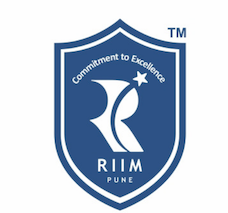

.jpg)
